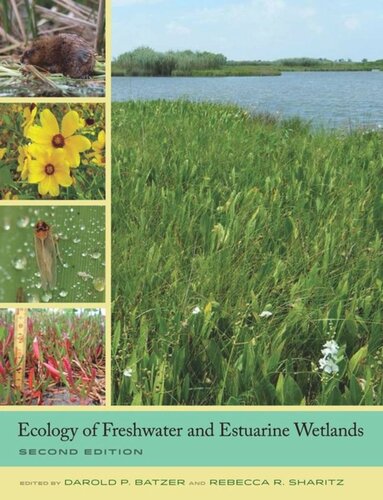

Most ebook files are in PDF format, so you can easily read them using various software such as Foxit Reader or directly on the Google Chrome browser.
Some ebook files are released by publishers in other formats such as .awz, .mobi, .epub, .fb2, etc. You may need to install specific software to read these formats on mobile/PC, such as Calibre.
Please read the tutorial at this link: https://ebookbell.com/faq
We offer FREE conversion to the popular formats you request; however, this may take some time. Therefore, right after payment, please email us, and we will try to provide the service as quickly as possible.
For some exceptional file formats or broken links (if any), please refrain from opening any disputes. Instead, email us first, and we will try to assist within a maximum of 6 hours.
EbookBell Team

4.8
14 reviewsThis second edition of this important and authoritative survey provides students and researchers with up-to-date and accessible information about the ecology of freshwater and estuarine wetlands.
Prominent scholars help students understand both general concepts of different wetland types as well as complex topics related to these dynamic physical environments. Careful syntheses review wetland soils, hydrology, and geomorphology; abiotic constraints for wetland plants and animals; microbial ecology and biogeochemistry; development of wetland plant communities; wetland animal ecology; and carbon dynamics and ecosystem processes. In addition, contributors document wetland regulation, policy, and assessment in the US and provide a clear roadmap for adaptive management and restoration of wetlands. New material also includes an expanded review of the consequences for wetlands in a changing global environment.
Ideally suited for wetlands ecology courses, Ecology of Freshwater and Estuarine Wetlands, Second Edition, includes updated content, enhanced images (many in color), and innovative pedagogical elements that guide students and interested readers through the current state of our wetlands.